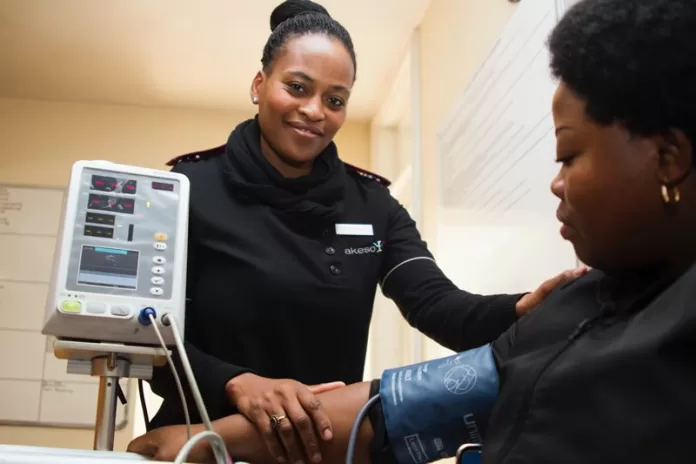Preventative health care is crucial for developing immunity against diseases and maintaining overall well-being. Regular health screenings keep you informed about your health status, enabling you to make informed lifestyle changes to mitigate risks associated with various conditions. Given the challenges in Nigeria—such as the low doctor-to-patient ratio and inadequate healthcare infrastructure—conducting at-home health checks is not just a recommendation but a necessity for survival.
According to the World Health Organization (WHO), preventable non-communicable diseases are on the rise in Africa. Regular health screenings through laboratory tests can play a pivotal role in early detection and treatment. Research indicates that 70% of medical decisions regarding diagnosis, treatment, and discharge are based on lab test results. Yet, despite their importance, many people procrastinate on these tests due to the inconvenience of travel and waiting times in clinics and hospitals.
The Importance of At-Home Health Checks
The pandemic has further complicated access to healthcare, making it risky for many to visit healthcare facilities. Fortunately, many essential health checks can be performed in the comfort of your home. With trained phlebotomists available for home visits to collect samples, you can easily undergo various tests without the stress of commuting through traffic.
Essential At Home Health Checks
Here are some vital health checks you can perform at home, including their significance and recommendations for frequency:
1. Cholesterol Test
Cholesterol levels are critical for heart health. A cholesterol test measures total cholesterol, HDL (good cholesterol), LDL (bad cholesterol), and triglycerides in your blood. High cholesterol often presents no symptoms until serious damage has occurred. High levels of cholesterol can build up in the arteries and increase your risk of a heart attack or stroke. It’s recommended to start cholesterol testing at age 20 and continue annually. If you have risk factors like diabetes or high blood pressure, more frequent testing is advisable.
2. Diabetes Test
Diabetes is a major global health concern, and early detection is crucial. At-home testing can include a Hemoglobin A1C blood test or fasting/random blood sugar test. A fasting test is preferred for accurate readings, requiring no food intake for at least eight hours. It’s suggested to test for diabetes every three years starting at age 45, or sooner if risk factors are present.
3. Kidney Function Test
Your kidneys play a vital role in filtering waste from your blood. Kidney function tests include blood and urine tests that can be conducted at home. Regular testing is important, especially if you have diabetes or high blood pressure. Annual checks can help detect potential issues early.
4. Prostate-Specific Antigen (PSA) Test
For Nigerian men, the PSA test is crucial for detecting prostate cancer early. Men over 35 should have this test annually. Elevated PSA levels can indicate prostate issues, including cancer. It’s essential to consult a doctor for interpretation and further action if results are abnormal.
5. Blood Pressure Monitoring
High blood pressure often goes unnoticed but is a leading risk factor for heart disease and stroke. Regular monitoring is vital, and many pharmacies offer walk-in clinics for quick checks. Common symptoms of low blood pressure include nausea and dizziness. High blood pressure, however, rarely has noticeable symptoms but can weaken your heart and damage the walls of your arteries, increasing the risk of heart disease, stroke and kidney disease. If you have high blood pressure, frequent testing is necessary to manage it effectively.
READ ALSO: The Journey of Self-Belief: Embracing Your True Self
6. Heart Rate
Your heart rate is a vital indicator of your overall health. A healthy resting heart rate typically ranges from 60 to 100 beats per minute, with fitter individuals often having lower rates. To check your heart rate, place a finger on the inside of your wrist, count the beats for 10 seconds, and multiply by six. If your heart rate is consistently high, consider increasing your physical activity, such as walking regularly. If you have concerns, consult a healthcare professional.
7. Breast Exam
Breast cancer is prevalent, with significant diagnoses occurring each year. To conduct a breast self-exam, set aside five minutes each month. Check for changes in size, color, and shape, and feel for any lumps. While fatty lumps are common, report any abnormalities to your doctor. Regular self-exams help you become familiar with your body but do not replace professional screenings.
8. Skin Check
Skin cancer is a leading cancer diagnosis, making regular skin checks essential. Use a mirror or ask someone to help you examine hard-to-see areas. Look for moles with asymmetrical shapes, larger than a pencil eraser, or those that itch, bleed, or change color. keeping an eye on moles can help you to spot the early signs of skin cancer. Most moles are harmless, but sometimes they can develop into a rare form of skin cancer called malignant melanoma Regular monitoring can aid in early detection, so be vigilant and consult a dermatologist if you notice any concerning changes.
Regular health checks are vital for maintaining good health, particularly in a challenging healthcare landscape like Nigeria’s. By making healthy nutrition and lifestyle choices, and performing regular self-checks, you help reduce your risk of advanced cancer and other diseases. Put your health in your own hands and perform self-exams. If you have any concerns, make sure to address them right away with your primary care provider


